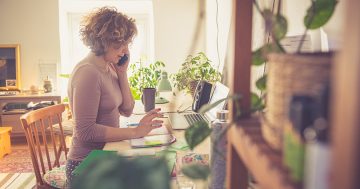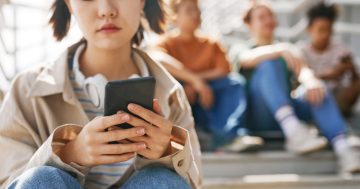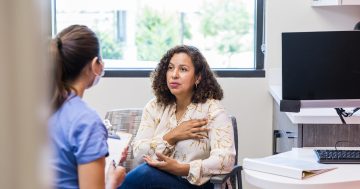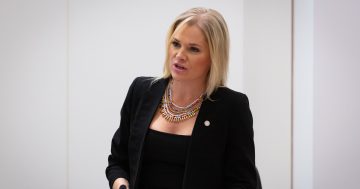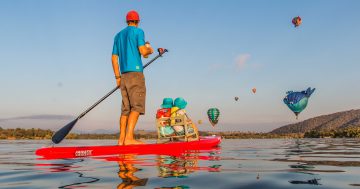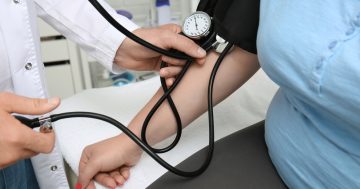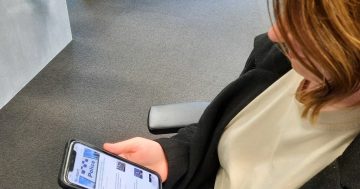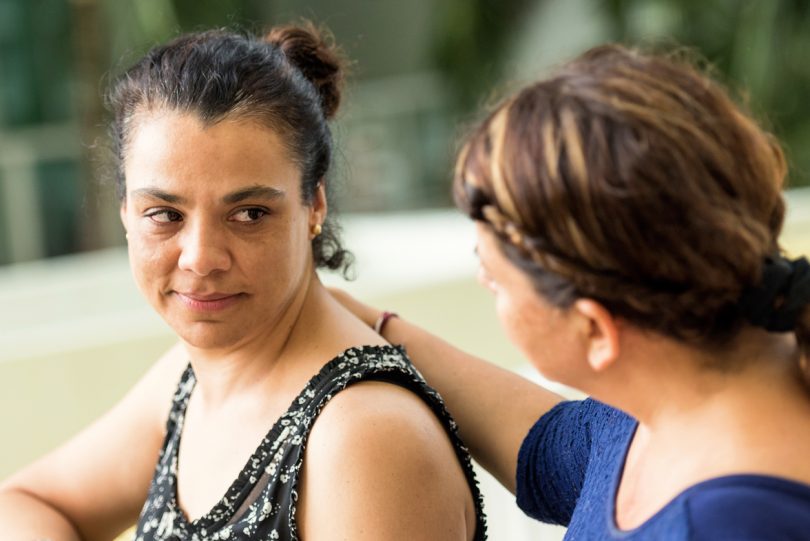
Listening without judgement is very important when supporting friends or family members in a violent relationship. Photo: File.
“I live alone and have been working from home for five weeks. I’m lonely and sad but feel guilty for being upset because I still have a job and nothing is wrong.”
This is one of 419 responses from a survey of people in the Canberra region about the impact of the COVID-19 pandemic.
Conducted by Relationships Australia’s Canberra & Region office, the survey is one of many gauging the lives of people in Goulburn, Cooma, the South Coast and west to Wagga Wagga.
While the statements of respondents may seem fairly obvious, they help shape the programs being run by Relationships Australia.
“I am thriving under stay-at-home orders and am feeling anxious about a return to normal,” said another of the anonymous survey responses.
CEO of Relationships Australia Canberra & Region, Alison Brook, said the responses portray just part of the picture, but they are typical of the year 2020 that will become known as a “social phenomenon”.
“I’m really interested in the things 2020 has thrown at us as a social phenomenon right around the world,” said Ms Brook. “There are going to be thousands of PhD theses written about this year, and that’s why we’ve run the survey on our website.
“I think things are happening in people’s lives now, that with reflection this time next year, will show how we have learnt a lot more about the impact on people’s lives that this year is having.
“There’s no doubt it’s a biggie. It’s a game-changer, but not all of it is negative.”
Ms Brook said some people have embraced the challenges of life in lockdown, while others have faced its challenges.
“There are families who have gone back to playing card games and board games,” she said. “There are examples of some families who have managed to get back to really beautiful ways of connecting that we didn’t have time to do before.”
The survey revealed that about half of all respondents experienced an increase in feelings of anxiety, low mood and loneliness.
About one-third of respondents reported overall poorer physical and mental health, and one-third reported increased financial pressure. Just under one-third reported increased use of drugs and alcohol.
The levels of conflict at home remained stable for nearly half of all respondents. However, one-fifth reported increased conflict within their family.
More than half of all respondents reported less engagement and connection to their community, while people turned to family and friends via phone calls, video calling, texting and smartphone apps to stay connected. People engaged in shared activities such as cooking, gardening and walking during self-isolation.
Some respondents enjoyed the slower pace of life during restrictions, however many missed physical contact with others and were looking forward to seeing family and friends in person.
SEE ALSO: Series of unfortunate events redefines wellbeing survey
Relationships Australia has also sharpened its focus on the NSW South Coast by setting up a Headspace program in Batemans Bay, providing tailored and holistic mental health support to young people aged between 12 and 25.
“There’s a lot of trauma for people on the South Coast,” said Ms Brook. “Some people are still living in caravans and tents in the middle of winter. They are struggling with their mental health and their relationships, and COVID-19 isn’t helping the situation.
“What happened with the bushfires is still a big deal everywhere so people’s everyday lives are still hugely impacted, yet our attention is very much focused on COVID-19 right now.”
This comes as figures show young people under the age of 25 account for nearly half of all job losses during the month of July.
Ms Brook has also been personally impacted, having to work in self-isolation after being in Batemans Bay to assist with the Headspace launch during the recent period when the area was a COVID-19 hotspot.
But the organisation’s staff of more than 140 people continue their work in the region, from villages where people face issues in personal relationships to people in larger centres dealing with anxiety and loneliness.
“There are still issues with family violence and often it’s a multi-generational thing from examples that were set by parents and grandparents,” said Ms Brook.
“But I think the fires and COVID-19 have created a perfect storm in relationships that might have been fragile in the first place. So we are now seeing people come to our family relationship centres wanting to talk about separation that might have occurred anyway, but things have certainly exacerbated this year.”
Ms Brook said the best way of dealing with issues is to build skills in communicating, and there are a number of free courses run by Relationships Australia, including a COVID-19 survival kit for couples.
For further information, head to the Relationships Australia Canberra & Region website. You can read the COVID-19 Impact Report here.












